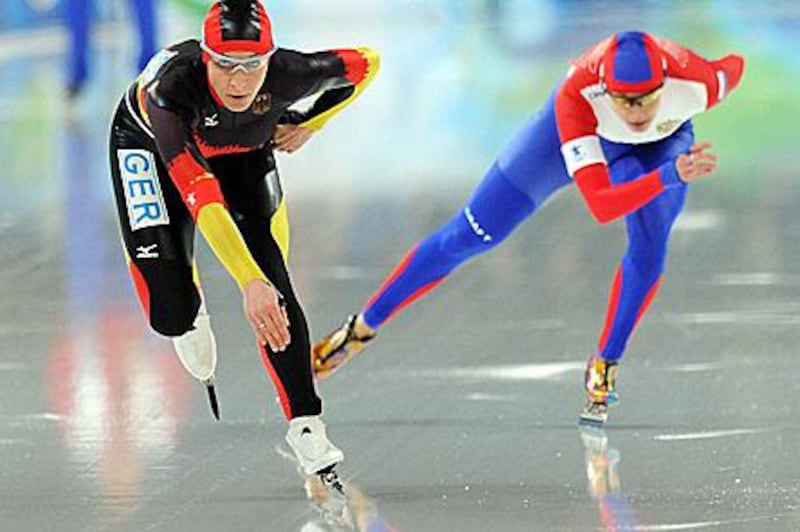When the 106-day torch relay finally comes to an end at the BC Place Stadium in Vancouver today, the wait for the 2010 Winter Olympics will be over. The next 17 days will see 2,500 of the world's best winter sports athletes from 82 countries showcase their talents on a global stage hoping that four years of hard training will pay off with a podium finish. For Marjan Kalhor, however, victory has already been achieved.
The Iranian alpine skier will become her country's first female Winter Olympian when she slaloms down the slope at Whistler Creekside; it will be the realisation of a dream born out of spending the 2006 Turin Games on the sidelines. "I always asked my brother, 'Why can't a woman compete in the Winter Olympics?'" she said. "Since Turin, I've told myself that if Iran allows women to compete in the next Olympics, I have to be the first."
Kalhor's journey began at the age of four when she started skiing in the Alborz mountain range north of Tehran but it wasn't until she won the National Youth Championships that she really began to consider a future in the sport. Hard work and dedication has brought Kalhor to the pinnacle of her sport and she will also have the honour of leading Iran's team as flag-bearer at the opening ceremony. While Kalhor, 21, has become a national icon, the same cannot be said for India's Shiva Keshavan.
Dubbed his country's fastest man, the luger is hardly a household name in his homeland despite competing at three Winter Olympics prior to this. "India is still a one-sport country: cricket," Keshavan said. "But it's increasing a lot, especially because there's so many aspiring young kids who do other sports but they never get the chance to express themselves. "Maybe me or other athletes who do non-conventional sports for India, maybe they see an interest for themselves."
His dream of competing for his country was ridiculed as a youngster with many of the opinion that a boy born and raised in the Himalayan region of northern India would never make the grade as a world-class luger. Keshavan, 28, has beaten the odds to get to reach his goal and while the chances of a top-10 finish in Vancouver appear remote for a man ranked 51st in the world, he is not ruling himself out just yet.
"I'm pretty sure I can make it to the top 10," he said. "With the new equipment that I have, I can shave off some time." India's neighbours Pakistan will be sending their first delegation to a Winter Olympics and Muhammed Abbas will make history as his country's first competitor when he takes to the slopes as part of the field for the men's giant slalom event. While the start of the action cannot come quickly enough for some, American skiing star Lyndsey Vonn will be wishing the clock would slow down.
After dominating the World Cup season, Vonn was expected to win multiple gold medals but the American now faces a race against time to prove her fitness after it was revealed that she is suffering from a painful bruised shin which threatens to hinder her involvement at the Games. "This is definitely the most painful injury I've ever had," she said. "It's hard to stay positive. It's hard to focus on being prepared for the Olympics when you have an injury like this."
Vonn, 25, now faces a late fitness test, the results of which will determine whether she can take part in any of the five events she is registered for, but despite the pain she is hopeful. "Three days ago I would have said absolutely not [to competing]. It feels better. I'm optimistic, but not sure." All of these athletes will experience the pressure of representing their respective nations whilst under the intense spotlight created by a global television audience of three billion, a media presence of 10,000 and 250,000 spectators.
However, it is the Canadian men's ice hockey team who will be under most pressure in a country where the sport dominates the sporting landscape. "The pressure is unbelievable because you feel that if you lose you let the whole country down," said Don Cherry, the Canadian TV hockey commentator. "No question, we can't settle for silver." sports@thenational.ae





